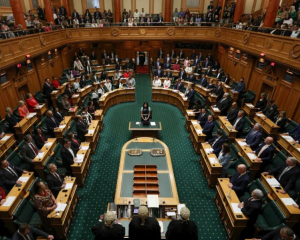Mr Key said the case, in which the diplomat invoked immunity, had been discussed at a ministerial level.
The diplomat, aged in his 30s and employed at a high commission in Wellington, faced charges of burglary and assault with intent to rape after following a 21-year-old woman to her home last month.
Diplomats cannot be arrested or detained in foreign countries and the man's home country refused to waive diplomatic immunity.
Mr Key said the Government "expressed [its] view" that the man should have faced the charges in New Zealand.
"But it is, as you know, up to the home country to decide whether they invoke diplomatic immunity or not."
Police began criminal proceedings against the man last month and notified the Ministry of Foreign Affairs and Trade (Mfat).
Mfat asked his host country to waive immunity, but its government refused and pulled him from his posting in Wellington.
The ministry sent a diplomatic note to his home country to say it wanted the man to face the sexual assault charges here.
Mr Key said he understood an investigation was under way in the diplomat's country.
"It's an ongoing process here at the moment, there's a suppression order so I can't go into too much detail.
"But my understanding is that the home country is looking at the case and charges might follow there."
The police file remained alive and if the diplomat returned to New Zealand in a non-diplomatic position he could be arrested.
Labour's foreign affairs spokesman, David Shearer, said Foreign Minister Murray McCully needed to ensure the matter was not "swept under the carpet and forgotten about".
Mr Shearer said extradition of the diplomat to face charges in New Zealand should be considered.
He also questioned the name suppression for the diplomat and their country.
"The Vienna Convention that provides diplomatic immunity is an ancient agreement, one that New Zealand takes seriously and upholds. It protects our diplomatic personnel serving overseas, no matter where they are located.
"Nevertheless, we also expect justice to be done and the rights of any victim to be respected and not simply forgotten."
- Isaac Davison of the New Zealand Herald











